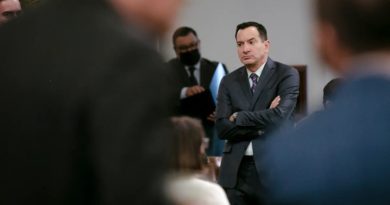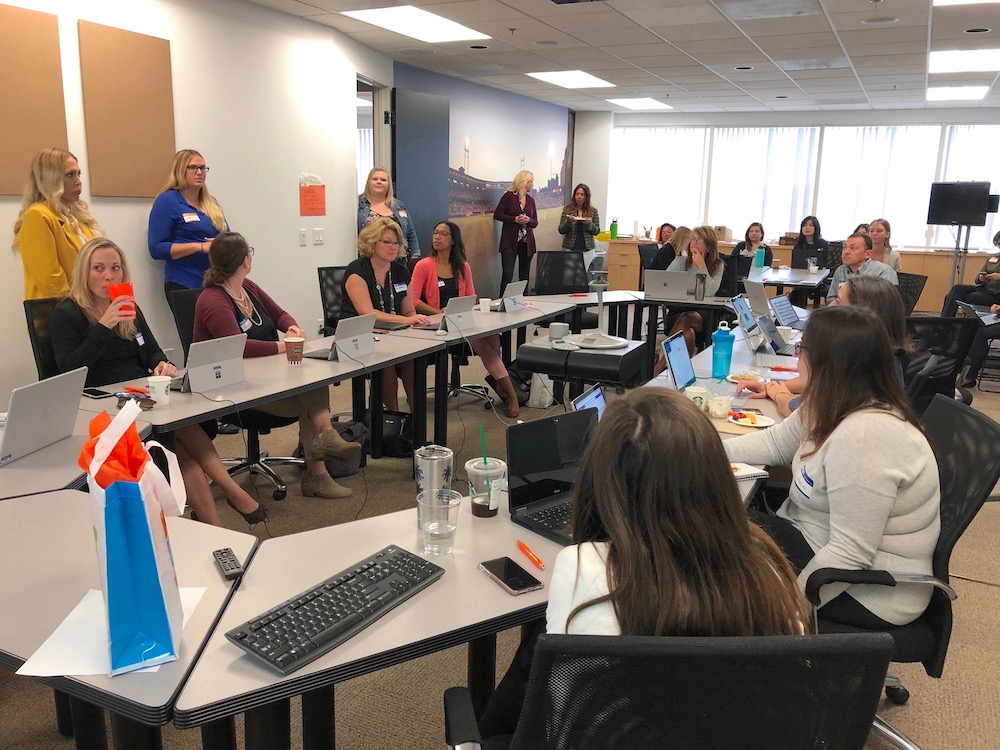Daily Business Report-March 2, 2015
Atkins’ Affordable Housing Plan
Sound Familiar?
The city of San Diego’s had nothing but trouble trying to increase funding for subsidized housing.
Faced with a long waiting list of low-income residents waiting for subsidized homes, the city for years tried to hike a fee charged to commercial developers to help solve the shortfall. Last year, the city and business groups opposing the fee increase finally struck a compromise.
Now, Assembly Speaker Toni Atkins is looking to solve the problem from Sacramento, and she’s proposing a solution that’ll be familiar to anyone who’s been following along locally.
She rolled out a series of proposals last week that includes a new $75 fee on real estate transactions that, according to her office, will provide “a few hundred million dollars” for building housing for families earning below the median income.
Click here to read Voice of San Diego’s report.

San Diego Eyes Plastic Bag Ban
In Case State Law Rejected
With California’s statewide ban on single-use plastic bags threatened by a new ballot measure, San Diego is again studying a possible local ban.
City Council President Sherri Lightner announced plans to reintroduce a measure from 2013, and Mayor Kevin Faulconer said he has asked city staff to resume work on the local ordinance.
“San Diegans treasure our natural resources, which is why I’ve made protecting our environment a top priority,” Faulconer said. “Immediately after the referendum on the statewide plastic bag bill qualified for the ballot and halted the implementation of new regulations, I directed city staff to resume with the environmental review of San Diego’s proposed plastic bag ordinance for consideration by the public and the City Council.”
The statewide ban under SB 270 was set to go into effect July 1, but opponents obtained over 500,000 signatures to place a referendum on the 2016 ballot. The law will now be suspended until the election.
“SB 270 was never a bill about the environment. It was a backroom deal between the California Grocers Association and their union friends to scam consumers out of billions of dollars in bag fees, all under the guise of environmentalism,” said Lee Califf, the executive director of the American Progressive Bag Alliance, which organized the “Bag the Ban” signature-gathering drive.
— Times of San Diego
General Atomics Offers Predator B to Spain
General Atomics Aeronautical Systems Inc. and SENER, a Spanish engineering company, have signed an agreement to promote the use of the Predator B unmanned aircraft to support Spain’s surveillance and reconnaissance requirements.
Frank W. Pace, president of aircraft systems for General Atomics, said the Spanish firm is a leading high-technology company with a long record of success in the defense and security sectors. “GA-ASI is fully committed to working with Spanish industry as we believe this program’s success requires local industry partnerships that provide collaborative innovation in enhancing the capabilities of Predator B for the Spanish Government,” said Pace.
General Atomics said the joint partnership offers a wealth of combined expertise in support of the Predator B program for Spain. Operationally proven with over 1 million flight hours, the Predator B provides unmatched persistent situational awareness, safeguarding borders and maritime approaches, supporting military missions worldwide, and saving lives in areas that have been afflicted by natural disasters, according to the company.
“Complementing this capability, SENER will leverage its proven engineering experience to optimize and synergize Predator B data collection in support of the customer. The team will create high-technology jobs in the rapidly growing field of RPA for the people of Spain,” the company said.
Cuyamaca College President Mark Zacovic to Retire
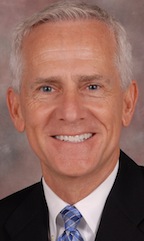
After a career spanning three decades in the California community college system, Cuyamaca College President Mark J. Zacovic has announced his retirement, effective June 30.
Zacovic has served as president of Cuyamaca College, with about 9,000 students in Rancho San Diego, since July 2011. He led the college through some of the toughest budgetary challenges in the institution’s 37-year history.
An interim president will be chosen to lead the college during the 2015-16 academic year while a national search is conducted for a permanent replacement. The new president is expected to begin in July 2016.
As president of Cuyamaca College, Zacovic promoted a heightened focus on student success based on yearly themes such as “Learn Today-Lead Tomorrow” or “Graduation Starts Today.” Last June, the college awarded a record number of more than 900 degrees and certificates, the result of student success measures.
The college has also been recognized as a leader in sustainable landscaping and green career training. In 2012, Cuyamaca College was selected as one of three community colleges in the state to be honored by the California Community Colleges Board of Governors for promoting sustainable landscaping on its campus.
Before coming to Cuyamaca College, Zacovic served as an administrator at eight community colleges and districts throughout California. He previously served as president of the board of directors of the Association for Chief Business Officials for California Community Colleges and was statewide recipient of the association’s 2006 Outstanding CBO Award.
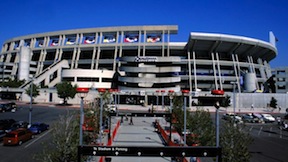
Stadium Task Force to Hear From the Public Tonight
A nine-member group formed to advise Mayor Kevin Faulconer on where to locate and how to finance a new stadium for the Chargers will hold an open meeting tonight at Qualcomm Stadium to take input from the public.
The meeting comes after a raucous month in which the Chargers revealed plans to build a stadium jointly with the Oakland Raiders in the Los Angeles suburb of Carson — in case their hopes for new playing facilities in their home cities don’t bear fruit — and questioned the independence of the mayor’s task force.
The task force said it would issue a plan in three months, which would be late May.
Mayor Kevin Faulconer has stressed that a new stadium would not be solely for the Chargers, but would also accommodate San Diego State University, the Holiday and Poinsettia bowls, and other events like soccer matches and concerts.
A rally for fans is scheduled at 5 p.m., and the advisory group meeting is set for 6 p.m., in Club Lounge 5. Overflow seating will be available if the room’s capacity of 400 is reached.
Radio stations KOGO, the Mighty 1090 and XTRA 1360 plan to broadcast the forum live, and it will be streamed live at utsandiego.com.
— City News Service
Ebola Drug ZMapp Enters Clinical Trial
A clinical trial of ZMapp, the drug that helped treat Ebola last year, began last Friday in partnership between the National Institute of Allergy and Infectious Diseases and the government of Liberia.
ZMapp was developed by a San Diego-based pharmaceutical company, Mapp Biopharmaceutical, and until now, has not been tested in human clinical trials. It was used under emergency authorization to treat nine infected patients in the United States, Africa and Western Europe.
“Although ZMapp has been used to treat several Ebola-infected patients in recent months, we cannot determine if the drug actually benefitted those patients because it was not administered within the context of a clinical trial,” said Anthony S. Fauci, M.D., director of the NIAID in a statement. “This clinical trial will help us determine if ZMapp and other treatments are safe and effective for use in the current devastating outbreak in West Africa as well as in future outbreaks.”
The study is a randomized controlled trial enrolling adults and children who were admitted to Ebola treatment units in Liberia, as well as those who may have acquired Ebola through secondary transmission in the United States. Healthcare workers infected with Ebola who returned to the U.S. for treatment will also be eligible.
— Times of San Diego
Conference to Explore Role of
Housing In Politics and Society
The University of San Diego’s Architecture Conference — set for March 12-13 in Camino Hall and Manchester Conference Center Auditorium — will explore the role of housing in politics and society.
In the past decade, the public discussion on housing has focused on its role as a financial asset and contributor to the economic cycles of boom and bust. Yet the conference will turn its attention to housing’s role in matters of politics, social reform and artistic practices.
Conference discussions will explore the relationship between housing and the development of modernism, the ways in which the imperative to provide quality shelter for large numbers of inhabitants shaped the definition of architecture, as well as the disciplinary implications of taking on housing as an architectural assignment and responsibility.
Reinhold Martin, professor of architecture at Columbia University, will give the conference keynote address. Martin, who was formerly a partner at the firm of Martin/Baxi Architects, brings a theoretical perspective on the city that combines aesthetics with political economy. Other conference participants include UCLA professors Sylvia Lavin and Michael Osman, professor Patricia Morton from UC Riverside, and leading scholars from around the world.
The event is free and open to the public.
Gift Endows Leadership Center at SDSU
Jeffrey W. Glazer, a long-time supporter of leadership programs at San Diego State University, has endowed the formerly named Center for Leadership and Community Service and its programs for students across campus.
He was joined by SDSU President Elliot Hirshman and Vice President for Student Affairs Eric Rivera, along with a group of student leaders last week for the naming of the Jeffrey W. Glazer Center for Leadership and Service.
“Jeff’s incredible generosity will enable us to support, enhance, transform and sustain our center and provide ongoing support of students and leadership initiatives for years to come,” Rivera said.
Glazer, who taught in the College of Business Administration, served on the boards of the SDSU Alumni Association and the Campanile Foundation. He hopes his gift will lead to greater collaboration among SDSU’s academic and cocurricular departments to provide additional leadership opportunities for students.
The Glazer Center, located in the southwest corner of the second floor of the Conrad Prebys Aztec Student Union, offers students a variety of leadership and service opportunities.
Two Appointed to County Fair Board
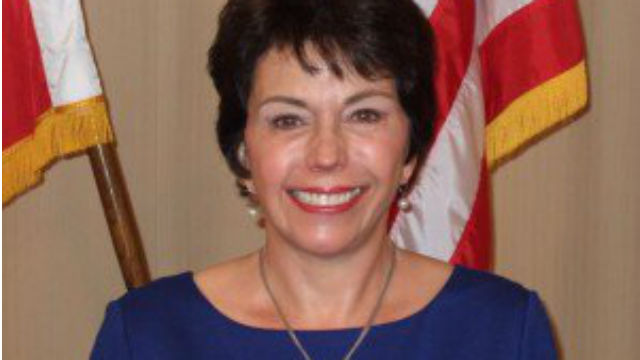
Lee Haydu, 66, the former mayor of Del Mar, and Pierre Sleiman, 28, of San Diego, have been appointed to the San Diego County Fair Board by Gov. Jerry Brown.
Haydu served as mayor of the city of Del Mar from 2013 to 2014 and was an administrator at Paul J Haydu, M.D., a Medical Corp. from 1986 to 2014. She was deputy mayor for the City of Del Mar from 2012 to 2013, where she served as a member of the city council from 2010 to 2012. Haydu was a sales representative at LXR Medical Supplies from 1985 to 1987, at Konica Medical Corporation from 1983 to 1985 and at Cambridge Medical Instruments from 1980 to 1982. Haydu is a member of Run Women Run and the Del Mar Garden Club. Haydu is a Democrat.
Sleiman has been founder and chief executive officer at Go Green Agriculture Inc. since 2009. He is a member of the San Diego County Farm Bureau Board of Directors. Sleiman earned a Master of Business Administration degree from the University of California, San Diego Rady School of Management. Sleiman is registered without party preference.
The positions do not require Senate confirmation and there is no compensation.

Scripps Research Provides New
Insights on Global Change
A Scripps Institution of Oceanography-led study on how natural and man-made sources of nitrogen are recycled through the Lake Tahoe ecosystem provides new information on how global change may affect the iconic blue lake.
“High-elevation lakes, such as Lake Tahoe, are sentinels of climate change,” said Lihini Aluwihare, associate professor of geosciences at Scripps Institution of Oceanography at UC San Diego. “Small changes in the lake’s chemistry can have big impacts on the entire ecosystem.”
Lake Tahoe’s nitrogen concentration is one of several factors that helps maintain its crystal clear waters. To keep Tahoe blue in the future, the researchers say it’s important to keep a close eye on the nitrogen balance in the ecosystem over time.
The study, published in the Feb. 23 issue of the journal Nature Communications, tracked nitrogen, including that produced from the burning of fossil fuels, in the Lake Tahoe ecosystem. Nitrogen can affect both the productivity of lake food webs and the composition of the microbes that support nutrition for those food webs.
A main goal of the study was to understand how the nutrient is being cycled through the food web. Using radiocarbon isotope techniques, the researchers dated the molecular components and discovered that some nitrogen was preserved in proteins and unavailable for biological consumption for 100 to 200 years.
“It is unusual for organic nitrogen to be sitting around for long periods of time in an ecosystem,” said Aluwihare, a co-author of the study. “This changes our view of how quickly nutrients are recycled in high-elevation lake ecosystems.”


